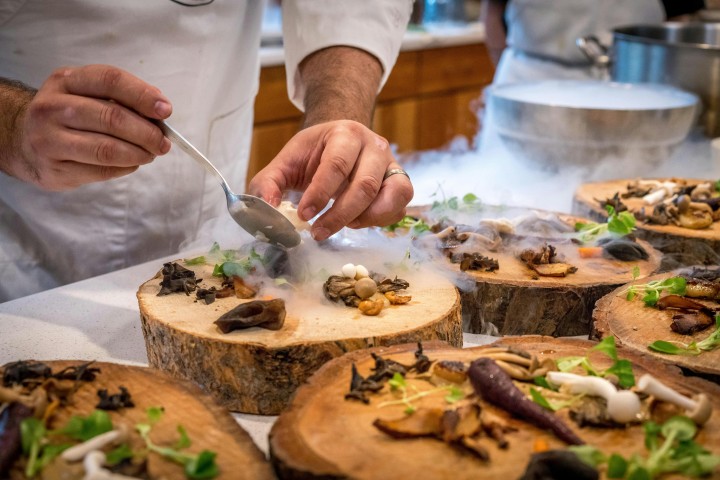
Are you interested in adding a local style to your Italian conversations? Well, you are in the right place ragazzi e ragazze, because we're about to show you the vibrant and lively world of Italian Slang!
In this article, we'll explore 40 unique ways to express yourself in the casual and colloquial manner that defines the spirit of modern Italian conversation. So, get ready to spice up your linguistic repertoire and immerse yourself in the hip and happening side of the Italian language.
Italian Slang, or "gergo italiano," is the secret sauce that adds flavor to everyday conversations. From the bustling streets of Rome to the charming alleys of Florence, these expressions reflect the dynamism and playfulness of Italian culture. Let's take a deep dive into 40 distinct ways to say Italian Slang Terms:
Used to express a wish or desire, similar to "I wish" or "hopefully."
Example: "Magari potessi andare alla festa stasera!" (I wish I could go to the party tonight!)

Signifying something cool or awesome.
Example: "Hai visto la nuova macchina di Marco? Che figata!" (Did you see Marco's new car? How cool!)
Equivalent to the English "I don't know," expressing uncertainty or lack of knowledge.
Example: "Mi chiedi sempre delle cose difficili, boh!" (You always ask me difficult questions, I don't know!)
Literally meaning "fig," it's used to describe something or someone cool or attractive.
Example: "Questo posto è davvero fico!" (This place is really cool!)
A versatile term expressing encouragement, agreement, or disbelief. Similar to saying "come on" or "no way."
Example: "Dai, non posso credere che hai fatto questo!" (Come on, I can't believe you did that!)
To not care about something or someone. Similar to saying "to not give a damn."
Example: "Me ne frego di quello che pensano gli altri." (I don't care about what others think.)
A more intense expression of surprise, similar to saying "wow" or "oh my god."
Example: "Boia, guarda che vista!" (Wow, look at that view!)
To make a good impression, similar to saying "to make a good impression."
Example: "Quando vai all'incontro, cerca sempre di fare bella figura." (When you go to the meeting, always try to make a good impression.)
To criticize someone harshly, akin to saying "to shoot someone down."
Example: "Non ha senso sparare a zero su di lui, ha fatto del suo meglio." (It doesn't make sense to shoot him down; he did his best.)
All talk and no action. Similar to saying "all bark and no bite."
Example: "Pensavo che avrebbe cambiato lavoro, ma è tutto fumo e niente arrosto." (I thought he would change jobs, but it's all talk and no action.)
To be skilled or capable. Similar to saying "to be good at something."
Example: "È davvero in gamba in cucina, fa dei piatti incredibili." (He's really skilled in the kitchen; he makes incredible dishes.)

To goof off or waste time. Similar to saying "to mess around."
Example: "Sto solo cazzeggiando, non ho nulla da fare." (I'm just messing around; I have nothing to do.)
Stop it! An imperative phrase to tell someone to quit or stop what they're doing.
Example: "Piantala di fare rumore, sto cercando di studiare." (Quit making noise; I'm trying to study.)
Everything is good or settled. Similar to saying "we're good."
Example: "Abbiamo risolto il problema, siamo a posto ora." (We've solved the issue; we're good now.)
How boring or annoying! Used to express frustration or boredom.
Example: "Che palle, questa lezione è interminabile!" (How boring, this lecture is never-ending!)
To quit everything or give up on something. Similar to saying "to throw in the towel."
Example: "Sono stanco di questo lavoro, mollo tutto e cambio carriera." (I'm tired of this job; I give up and change careers.)
A humorous way to ask if everything is alright, often used sarcastically.
Example: "Hai appena rotto il vaso. Tutto a posto, signor Rossi?" (You just broke the vase. Everything alright, Mr. Rossi?)
To be an expert at something. Similar to saying "to be a pro."
Example: "Luca è una pippa a calcio, non riesco mai a batterlo." (Luca is a pro at soccer; I can never beat him.)
To be fashionably late. Similar to saying "to be fashionably late."
Example: "Non ti preoccupare, possiamo fare tardi stasera." (Don't worry; we can be fashionably late tonight.)
Just a moment. Similar to saying "just a moment."
Example: "Mi serve il tuo aiuto, basta un attimo." (I need your help; just a moment.)
To stay focused or be on top of things. Similar to saying "to stay on the ball."
Example: "In questo lavoro devi sempre stare sul pezzo." (In this job, you always have to stay on the ball.)
To go crazy for something. Similar to saying "to go crazy for."
Example: "Vado pazzo per la pizza margherita." (I go crazy for margherita pizza.)
To live the good life or enjoy oneself. Similar to saying "to live the good life."
Example: "Quando sono in vacanza, mi piace fare la bella vita." (When I'm on vacation, I like to live the good life.)

To eat like a pig. Similar to saying "to eat like a pig."
Example: "Dopo l'allenamento, mangio come un porcello." (After the workout, I eat like a pig.)
To make a mess or create chaos. Similar to saying "to make a mess."
Example: "Abbiamo fatto un casino durante la festa." (We made a mess during the party.)
To stay afloat or keep one's head above water. Similar to saying "to stay afloat."
Example: "Con tutti i progetti, è difficile essere a galla." (With all the projects, it's hard to stay afloat.)
To stay up late into the night. Similar to saying "to stay up late."
Example: "Durante l'estate, mi piace fare le ore piccole con gli amici." (During the summer, I like to stay up late with friends.)
To flirt with someone. Similar to saying "to flirt with someone."
Example: "Marco sta facendo il filo a Giulia da giorni." (Marco has been flirting with Giulia for days.)
To be a burden or a nuisance. Similar to saying "to be a pain."
Example: "Il progetto è diventato una palla al piede." (The project has become a pain.)
To run away quickly. Similar to saying "to run away at top speed."
Example: "Quando ha visto il cane, è scappato a gambe levate." (When he saw the dog, he ran away at top speed.)
Good luck! A common expression to wish someone good luck.
Example: "Domani hai un esame? In bocca al lupo!" (Do you have an exam tomorrow? Good luck!)
To make a quick visit. Similar to saying "to make a short visit."
Example: "Passo a fare una capatina a casa tua dopo lavoro." (I'll make a quick visit to your place after work.)
To be annoying or bothersome. Similar to saying "to be a pain."
Example: "Smettila di rompere le scatole con quelle domande!" (Stop being a pain with those questions!)
To stay up all night. Similar to saying "to pull an all-nighter."
Example: "Abbiamo fatto una notte bianca per finire il progetto." (We pulled an all-nighter to finish the project.)
To be on the lookout or be vigilant. Similar to saying "to be as sharp as a hawk."
Example: "Quando sei in giro per la città, devi essere in giro come un falco." (When you're out in the city, you have to be as sharp as a hawk.)
To nitpick or look for flaws in something. Similar to saying "to split hairs."
Example: "Non c'è bisogno di cercare il pelo nell'uovo, va tutto bene così." (There's no need to split hairs; everything is fine as it is.)
To have one's head in the clouds. Similar to saying "to daydream."
Example: "Oggi ho la testa fra le nuvole, non riesco a concentrarmi." (Today I have my head in the clouds; I can't concentrate.)

To turn a deaf ear or ignore someone intentionally. Similar to saying "to turn a blind eye."
Example: "Gli ho chiesto aiuto, ma ha fatto orecchie da mercante." (I asked for help, but he turned a deaf ear.)
To be involved in something or have a hand in it. Similar to saying "to have a hand in something."
Example: "Mi piace avere le mani in pasta nei progetti creativi." (I like to have a hand in creative projects.)
You've misunderstood. Similar to saying "you got it wrong."
Example: "Non è quello che intendevo. L'hai capita male." (That's not what I meant. You got it wrong.)
While many Italian slang terms are widely understood, there can be regional variations. Some expressions are more common in specific areas, so it's always helpful to be aware of local nuances when using slang in different regions.
Italian Slang is generally reserved for informal settings. Using slang in formal situations might come across as unprofessional. It's essential to gauge the context and audience to ensure your language is appropriate.
Italian slang evolves over time, influenced by trends and pop culture. To stay updated, immerse yourself in contemporary Italian media, social platforms, and conversations. Online forums, dictionaries and language exchange groups can also provide valuable insights into current slang usage.
Yes, some slang terms may have regional or contextual sensitivity, and using them inappropriately can lead to misunderstandings. It's crucial to be aware of the cultural and social implications of certain expressions to navigate conversations smoothly.
Yes, you can mix slang with more formal language, but it's essential to do so judiciously. Using slang sparingly can add a touch of informality and authenticity to your speech, but overusing it may dilute the impact and make your language sound disjointed.